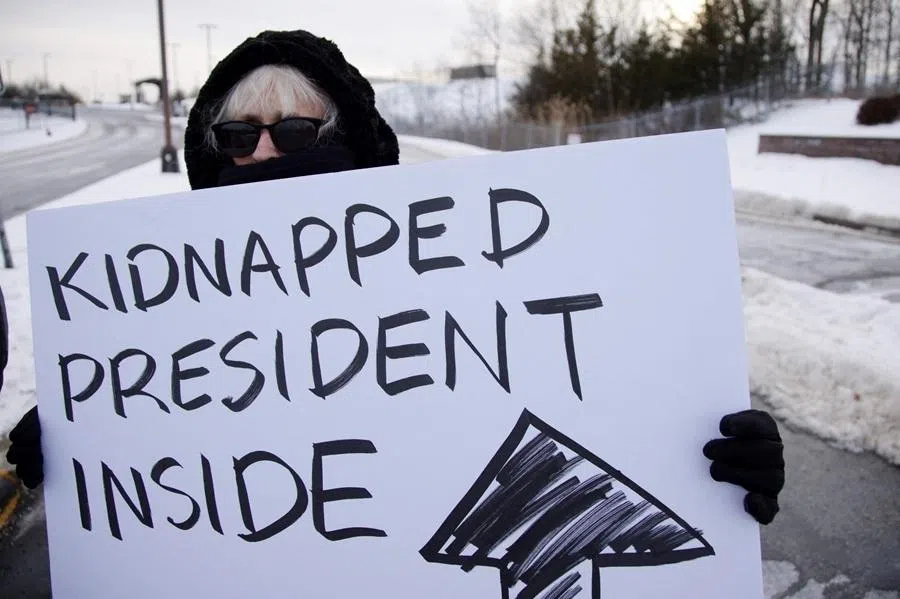Russia-Ukraine war: A turning point in Germany's policy towards China
Economics professor Zhu Ying notes that even though Germany is economically dependent on China, its stand is changing due to the war in Ukraine, with China being seen as supportive of Russia's invasion that goes against shared universal values. All in all, Germany's increasing focus on values rather than economic interests is having a spillover effect on China.

The Russia-Ukraine war has become a turning point in Germany's policy towards China. While Russian President Vladimir Putin's war against Ukraine does not pose a direct geopolitical challenge to China-Germany relations, it is the last straw in a series of events changing the nature of bilateral relations.
Hard work turning away from China
To begin with, from around the time that former German chancellor Angela Merkel handed over the reins, there was already negative sentiment against China among the German public. It is well known that Merkel, who visited China 12 times in her 16 years in office, loved China. A Xinhua commentary even said that she was one of the Western leaders who truly understood China. Amid the growing unilateralism of the US, the Merkel administration opposed containing China and engaging in a new Cold War.
But that's from Chinas' perspective. German politicians have for some time been distancing themselves from Merkel. Michael Roth, Social Democratic Party member who was the minister of state for Europe in the Merkel administration, has said that China is taking a tougher stance and pushing its agenda forward, especially during the pandemic, and that the EU should stand united in protecting its interests. He stressed that this was not just a question of Europe's confidence, but the EU's status on the world stage in the long run.
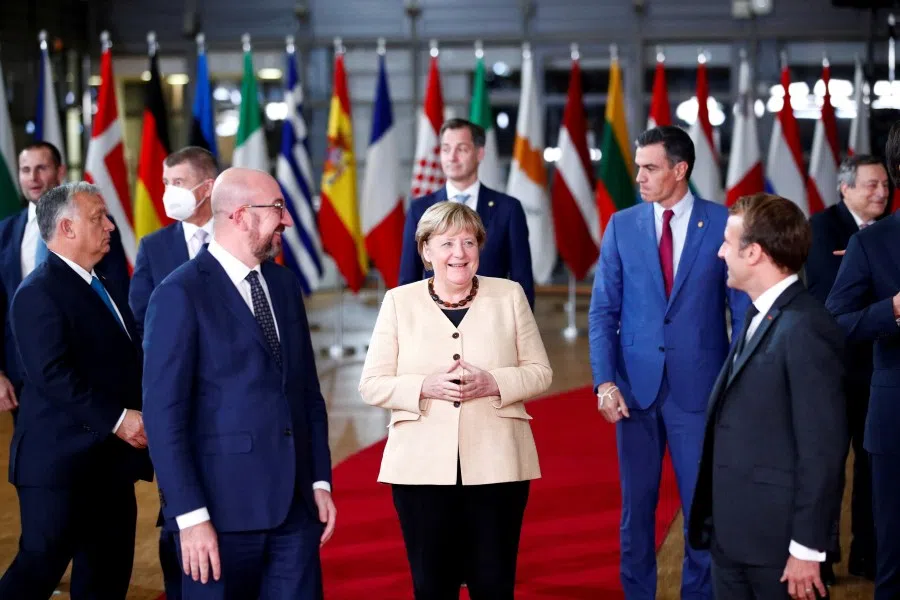
Norbert Rottgen, former chair of the Bundestag Foreign Affairs Committee, said that the Bundestag elections would not change the fundamental conflict between China and the West. While Europe, the US and other countries sought to maintain the current rules-based international order, a strong China wanted to challenge the status quo. China's strategy was to replace the current international rules with authoritarianism and self-interest, and Western countries would have to hit back.
In an interview with Reuters in November 2021, Merkel admitted that Germany may have been naive in some areas of cooperation with China at first but it could not sever all connections in reaction to growing tensions.
This is the background to the change in Germany's policy towards China. A coalition government of the Social Democratic Party, the Greens and the Free Democratic Party led by Olaf Scholz succeeded Merkel. One section of the signed coalition agreement titled "Germany's Responsibility for Europe and the World" has much to say about China on key issues including Taiwan, Xinjiang, the South China Sea and East China Sea disputes.
... people are not taking the coalition's stand on China seriously because Germany is highly dependent on the Chinese economy.
The agreement also hopes for "fair rules of the game" in competition with China; in accordance with its China strategy based on the EU's China policy, Germany also wants to work with like-minded countries to reduce strategic dependence.
However, people are not taking the coalition's stand on China seriously because Germany is highly dependent on the Chinese economy. Out of economic considerations, Germany cannot run the risk of damaging its relations with China. Basically, Germany is following Merkel's path without her, while paying lip service to its values. Indeed, there is no country that can take the place of China's enormous market and huge labour force.
Ukraine war's spillover effect on China
Second, the war in Ukraine is affecting China-Germany relations in two ways. Before the war, Germany's foreign policy could be summed up in three phrases: outsourcing security to the US, outsourcing energy needs to Russia, and outsourcing export-oriented growth to China.
After the Russia-Ukraine war broke out, Germany's policy towards Russia shifted, and the spillover effect has affected China. This is the first way that Germany's policy towards China has changed.
The history of Germany starting a war in the 20th century has led to a post-war Germany with the distorted view that dialogue and multilateralism are the only tools available to them. Germany does not want to arm itself and is basking in the dream of pacifism.
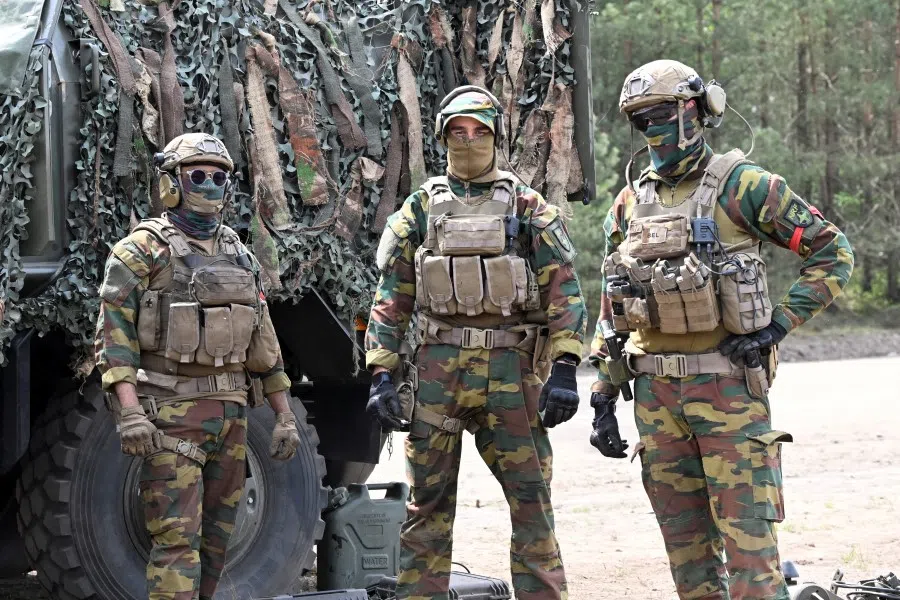
NATO calls on its members to commit a minimum of 2% of their GDP to defence spending, but in 2015 Germany only contributed US$40 billion or 1% of its GDP. Under pressure from former US President Donald Trump, Germany's defence spending hit 1.5% of its GDP, with the rest of its money going towards welfare.
Germany's green energy and nuclear-free policies have resulted in 25% of oil and 40% of natural gas being sourced from Russia. This is probably one of the reasons why Russian President Vladimir Putin chose to start the war with Ukraine in the winter, when Germany would depend on Russia for natural gas for heating, and why Germany hesitated to give military assistance to Ukraine and impose economic sanctions on Russia after the war began. Germany's support for Ukraine and pressure on Russia was far behind several of Ukraine's small neighbours, and even further behind Poland.
However, after the war began, Germany immediately announced an increase in defence spending. Public opinion holds that there has been a sea change in Germany's foreign policy.
The change in Germany's policy towards Russia has definitely affected China, because in recent years Western countries have tied China and Russia together in discussing international affairs...
In his book Five Germanys I Have Known: A History & Memoir, historian Fritz Stern described Weimar Germany, the Nazi Third Reich, post-Second World War West and East Germany, and a reunited Germany. Some would say that the world is witnessing the birth of a sixth Germany that is willing to use military strength to protect freedom and democracy.
The change in Germany's policy towards Russia has definitely affected China, because in recent years Western countries have tied China and Russia together in discussing international affairs. They believe that China and Russia have taken advantage of the openness of the liberal international order to strengthen themselves while engaging in an illiberal international order.
As US President Joe Biden puts it, this is a battle between democratic allies and autocratic countries. Western countries see the Belt and Road Initiative, the BRIC countries, the Asian Infrastructure Investment Bank, Shanghai Cooperation Organisation, and the influence and propaganda of China and Russia as challenges to the US-led international order.
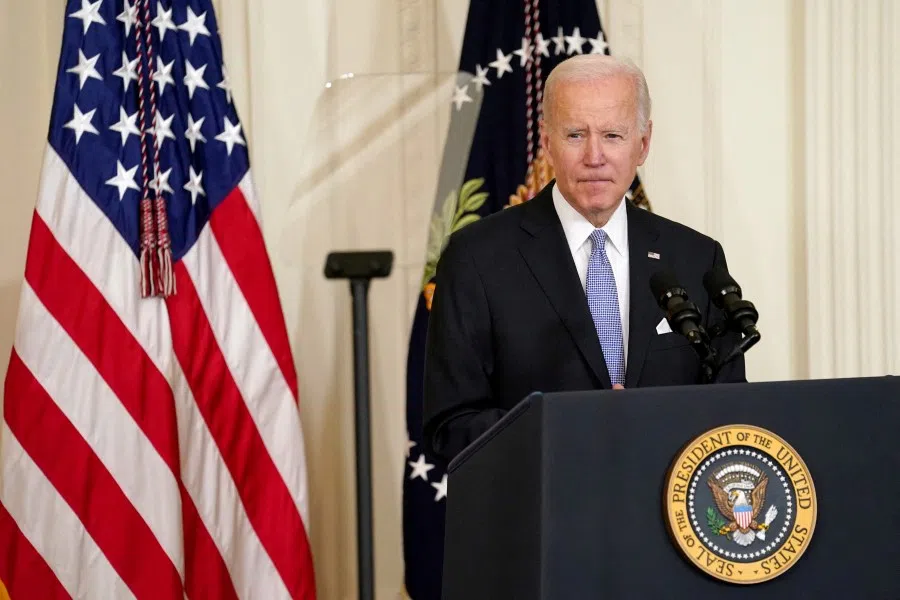
As for the cooperation between China and Russia across multiple areas, including those stipulated in the 2005 China-Russia joint statements about a new world order in the 21st century (《中俄关于21世纪国际秩序的联合声明》) and another on February 2022 about international relations entering into a new era and the global sustainable development (《中华人民共和国和俄罗斯联邦关于新时代国际关系和全球可持续发展的联合声明》), the West views these as evidence of a China-Russia alliance against Western countries.
Now, values are gaining importance over the economy in Germany's foreign policy, and a change in its policy towards Russia would mean that the growing priority of values is extended to China. Germany also views China and Russia as autocratic countries, and observes China through a kaleidoscope of economics, values and international politics.
The second way Germany's policy towards China has changed is in terms of China's stand on the war in Ukraine. Although the Chinese government has repeatedly said that China remains neutral towards Russia's military actions, Western countries believe otherwise.
On 3 May, the US Department of State stated, "[The People's Republic of China and the Chinese Communist Party] media and officials' further uncritical amplification of Moscow's messaging demonstrates Beijing's support for Russia."
On 1 April, after the EU-China Summit held via video conference, European Council President Charles Michel reminded China not to help Russia wage war.
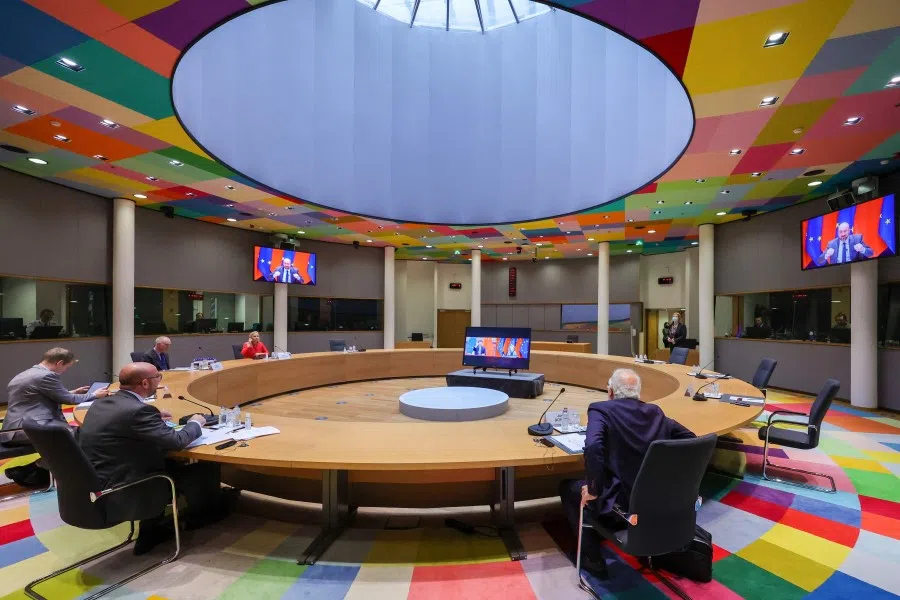
In addition, the EU has reiterated that if Beijing tries to undermine Western sanctions against Russia, or provides military support to Moscow, China will face serious consequences.
On 8 April, NATO Secretary-General Jens Stoltenberg noted China's unwillingness to condemn Russia's aggression, and said that Beijing has joined Moscow in questioning the right of nations to choose their own path, posing a "serious challenge" to NATO.
In the context of Germany decoupling from Russia in terms of energy, would it also initiate a partial decoupling from China?
Shift in Germany's stance
Germany is an important country in the EU and NATO. Currently, its foreign policy is closely aligned with the US and NATO, and highly consistent with the EU. Furthermore, it is more dependent on the US for security.
Without the US, can Ukraine defeat Russia? If Ukraine is defeated, Russian troops would easily conquer Poland and threaten Germany's border.
In the context of Germany decoupling from Russia in terms of energy, would it also initiate a partial decoupling from China?
And does what happened after the Ukraine war broke out show the shift in Germany's policy towards China? On 27 April, there were media reports that the German government blocked China from purchasing German medical device manufacturer Heyer, when the deal had earlier seemed confirmed, on the grounds of public security.
On 28 April, Scholz arrived in Tokyo, kicking off his first visit to Asia since becoming chancellor. The significance of bypassing China is obvious. Japanese Prime Minister Fumio Kishida called Germany a "strategic partner sharing common values" such as freedom, democracy and rule of law, and said that Japan would work with Germany in the international community to promote these values after the war.
Meanwhile, Scholz said, "My trip is a clear political signal that Germany and the European Union will continue and intensify their engagement with the Indo-Pacific region." For China, the comments by the two politicians are worth some thoughts.
It said that Germany should stand its ground on the side of the US-led West, and that no matter how bad the US was, it was still the lesser evil than China.
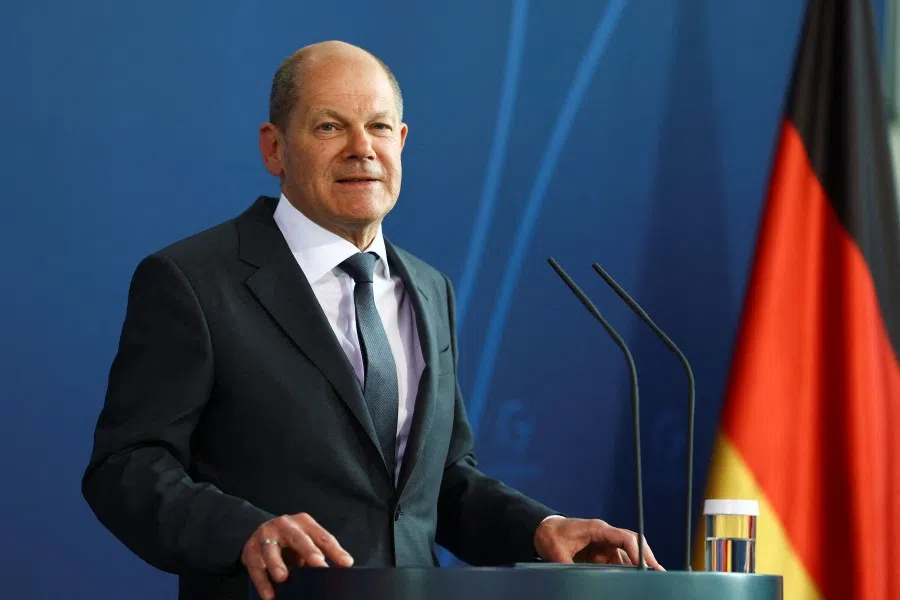
Germany's coalition ruling parties and the largest opposition alliance the Union (made up of the Christian Democratic Union of Germany and Christian Social Union of Bavaria) approved a petition for the government to deliver weapons including heavy arms to Ukraine, with a strong call for the government to convey the expectations of Germany and the EU for China to "give up its approval of the war and instead actively support efforts for a cease-fire".
Christian Democratic Union leader Friedrich Merz also supported the petition, in a clear sign that he has put aside former colleague Merkel's diplomatic legacy and is now critical of China.
Sina Finance reported that German newspaper Der Tagesspiegel called on the German government to reflect on its actions, and criticised it for wavering between China and the US out of economic interests. It said that Germany should stand its ground on the side of the US-led West, and that no matter how bad the US was, it was still the lesser evil than China.
A commentary by economist Gustav A. Horn in the German newspaper Die Zeit titled "Germany Needs New Rules for Global Trade" said that Western-led globalisation has been too politically naive, and trade policy in the new era has to be more oriented towards the values of freedom and democracy. Even in doing business with China, one has to ensure that China can be replaced at any time, even if it means higher costs.
How much will the change in Germany's policy towards China shape China-Germany relations? It is hard to say as history does not unfold according to the way the politicians envision it.
If the Chinese leaders had foreseen the situation in Ukraine today, they would probably have done all they could to persuade Putin not to start a war he could not win. Indeed, China has become one of the biggest victims of the war in Ukraine.





